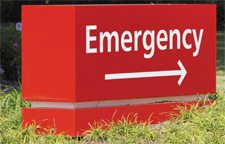 by Jae Lee, DO; Puneet Narang, MD; Manasa Enja, MD; and Steven Lippmann, MD
by Jae Lee, DO; Puneet Narang, MD; Manasa Enja, MD; and Steven Lippmann, MD
Dr. Lee is resident physician at Hennepin-Regions Psychiatry Program, Minneapolis-St. Paul, Minnesota; Dr. Narang is staff physician and ECT psychiatrist, Regions Hospital, Minneapolis-St. Paul, Minnesota; Dr. Enja is observer physician, University of Louisville School of Medicine, Louisville, Kentucky; and Dr. Lippmann is Professor of Psychiatry, University of Louisville School of Medicine, Louisville, Kentucky.
Innov Clin Neurosci. 2015;12(1–2):29–31.
This ongoing column explores off-label or emerging treatment options and trends in the field of neuroscience.
Funding: There was no funding for the development and writing of this article.
Financial disclosures: The authors have no affiliations with or financial interest in any organization that may pose any conflict of interest.
Abstract: Ketamine is an N-methyl-D-aspartate antagonist with rapid antidepressant effects. Research shows that ketamine has a fast onset of reduction in depressive symptoms and shows sustained remission of suicidal ideation in some patients. This article provides a brief review of the literature on the use of ketamine for depression and in acute cases of suicidality. The authors conclude that, while further investigation is needed, ketamine may be a useful treatment option for acute suicidality in emergency room settings.
Key words: Ketamine, suicidality, suicidal ideation, suicidal behavior, suicidal prevention, emergency room
Introduction
Major depressive disorder (MDD) is a common psychiatric illness in the United States, with a lifetime prevalence of 17 percent.[1] Bipolar disorder (BD) has a prevalence of 1 to 4 percent in the United States.[2] Suicide occurs in up to 1,500 cases of MDD and BD each year, and even hospitalization for suicidal ideation or behavior does not prevent all suicides; in fact, the risk for suicide is high immediately following hospital discharge among patients who have been hospitalized for suicidal behavior.[3]
While there are many treatment options for depression, none rapidly diminish symptoms (i.e., within hours).[4,5] Ketamine, an N-methyl-D-aspartate (NMDA) antagonist, has been shown to have rapid onset of antidepressant effects, which might be useful in acute cases of suicidalality in the emergency room setting.[6,7]
Pharmacology
Ketamine exhibits potent antagonist actions on NMDA receptors.[8] It also has weak affinity at sigma-1 and mu opiate receptors and norepinephrine and serotonin transporters.[8] The site of action is at the calcium channel of the receptor, where phencyclidine also binds. Ketamine activates glutamate receptors due to NDMA antagonism; glutamate is released downstream and stimulates postsynaptic glutamate receptors. When activated, these receptors stimulate a signal transduction pathway that leads to production of dendritic spines that in turn induce a rapid antidepressant influence.[8,9]
Ketamine can be administered orally, intravenously, intramuscularly, and intranasally.[10] Parenteral bioavailability is near 90 percent. Intravenous (IV) applications are favored.[10] Intramuscular injection yields limited efficacy, and intranasal administration has little support.[10–12]
Use in Depression
One double-blind crossover study in patients with MDD examined the efficacy and rapid onset of antidepressive effects of ketamine after infusion.[13 ]Patients were administered a single IV infusion of 0.5mg/kg ketamine over a 40-minute period. Depressive symptoms, measured by Hamilton Depressive Scale (HDRS), decreased by an average of 14 over a 72-hour period for seven individuals; one evidenced sustained antidepressant effects at two weeks post-infusion.
In another study,[14] 33 subjects with depression received a 0.5mg/kg ketamine infusion and were rated using the Scale for Suicide Ideation (SSI), Montgomery-Asberg Depression Rating Scale (MADRS), and the Beck Depression Inventory (BDI) at baseline at 40, 80, 120, and 230 minutes post infusion. There was a significant decrease in all the rating scale suicide scores within 40 minutes and specifically was cited at numerically less than 4 on the SSI.[14]
In another randomized, controlled trial,[15] 57 subjects with treatment-resistant depression were administered a single dose of ketamine or midazolam; 53 percent of the ketamine group revealed a zero on the suicide scores measured by the SSI, MADRS, and BDI at 24 hours, compared to 24 percent of those who received midazolam.[15]
Use in Suicidality
Noting the rapid antidepressive effects of ketamine, research has demonstrated its effectiveness in emergency room settings. In a study involving 14 subjects who presented to the emergency room for depression with suicidality, a single intravenous ketamine bolus was prescribed.[16] These patients, whether discharged or hospitalized, were monitored for four hours and were followed up daily for 10 days. After four hours, the mean MADRS score decreased from 40.4 at baseline to 11.5 and the MADRS suicide score decreased from 3.9 to 0.6. Furthermore, diminished suicidal ideation was sustained over 10 days, maintaining a greater than 50-percent reduction in MADRS at Day 10 post-infusion for all patients.[16]
A single-blind clinical trial involving 49 subjects who presented to the emergency room with suicidal ideation or behaviors received a single bolus of 0.2mg/kg ketamine and were rated at baseline, 40, 80, and 120 minutes.[17] After 40 minutes, the SSI score dropped from 23 at baseline to 16.2 and the MADRS score dropped from 38.2 to 25.6. The greatest reduction in SSI and MADRS scores was at 40 minutes. Ten days after the ED visit, only 6.1 percent of the enrollees expressed suicidal ideations.[17]
A case report of one patient with chronic suicidality documented a decrease in MADRS score from 4 to 2 within 24 hours following a single oral dose of ketamine.[18]
In a double-blind, randomized, crossover, placebo-controlled trial, 15 subjects with bipolar I or II maintained on lithium or valproate received IV infusions of ketamine.[7] Using a 50-percent change in MADRS as response criteria, 64 percent of the ketamine-infused subjects responded within 40 minutes after its infusion with reduced suicidal thinking.[7]
Adversities
Dissociative episodes, increased heart rate, and hypertension are side effects of ketamine.[19] Abuse potential is another concern. Injected or inhaled, abuse of ketamine yields a phencyclidine-like brief psychotic effect.[20]
Conclusion
Ketamine can induce fast onset antidepressant effects in patients with depression.[7,13–15,18] It also may rapidly decrease suicidal thinking within 40 minutes.[7,14,16,17] Sustained decrease in suicidal ideations at 10 days post-infusion has also been reported.[16]
Until further investigation on ketamine’s clinical use, safety, duration, and dosing is completed, ketamine treatment is not recommended for routine clinical applications or for use in place of psychiatric hospitalization during acute episodes of suicidality. Despite evidence of rapid improvement within 40 minutes,[7,14,16,17] response times to ketamine may be slower in some subjects.[19] Clinicians should also be mindful of dissociative effects and abuse potential.[20,21] Nevertheless, given its rapid onset of antidepressive effects, ketamine could be useful in times of suicidal crises in emergency room settings, and its use warrants further investigation.[16,17]
References
1. Kessler R, Chiu W, Demler O, Walters E. Prevalence, severity, and comorbidity of 12-month DSM-IV disorders in the national comorbidity survey replication. Arch Gen Psychiatry. 2005;62(6):617–627.
2. Grant B, Stinson F, Hasin D, et al. Prevalence, correlates, and comorbidity of bipolar disorder I disorder and axis I and II disorders: results from the National Epidemiologic Survey on Alcohol and Related Conditions. J Clin Psychiatry. 2005;66(10):1205–1215.
3. Qin P, Nordentoft M. Suicide risk in relation to psychiatric hospitalization: evidence based on longitudinal registers. Arch Gen Psychiatry. 2005;62(4):427–432
4. Post R, Leverich G, Altshuler L, et al. Differential clinical characteristics, medication usage, and treatment response of bipolar disorder in the US versus The Netherlands and Germany. Int Clin Psychopharmacol. 2011;26(2):96–106.
5. Machado-Vieira R, Salvadore G, Luckenbaugh D, et al. Rapid onset of antidepressant action: a new paradigm in the research and treatment of major depressive disorder. J Clin Psychiatry. 2008;69(6):946–958.
6. Price R, Iosifescu D, Murrough J, et al. Effects of ketamine on explicit and implicit suicidal cognition: a randomized controlled trial in treatment-resistant depression. Depress Anxiety. 2014;31(4):335–343.
7. Zarate C, Brutsche N, Ibrahim L, et al. Replication of ketamine’s antidepressant efficacy in bipolar depression: a randomized controlled add-on trial. Biologic Psychiatry. 2012;71(11):939–946.
8. Stahl S. Mechanism of action of ketamine. CNS spectrum. 2013;18(4):171–174.
9. Browne C, Lucki I. Antidepressant effects of ketamine: mechanisms underlying fast-acting novel antidepressants. Frontiers Pharmacol. 2013;4(12):1–18.
10. Caddy C, Giaroli G, White T, et al. Ketamine as the prototype glutamatergic antidepressant: pharmacodynamic actions, and a systematic review and meta-analysis of efficacy. Therapeut Adv Psychopharmacol. 2014;4(2):75–99.
11. Goforth H, Holsinger T. Rapid relief of severe major depressive disorder by use of preoperative ketamine and electroconvulsive therapy. J ECT. 2007;23(1):23–25.
12. Chilukuri H, Reddy N, Pathapati R, et al. Acute antidepressant effects of intramuscular versus intravenous ketamine. Ind J Psychologic Med. 2014;36(1):71–76.
13. Berman R, Cappiello A, Anand A, et al. Antidepressant effects of ketamine in depressed patients. Biologic Psychiatry. 2000;47(4):351–354.
14. DiazGranados N, Ibrahim L, Brutsche N, et al. Rapid resolution of suicidal ideation after a single infusion of an NMDA antagonist in patients with treatment-resistant major depressive disorder. J Clin Psychiatry. 2010;71(12):1605–1611.
15. Price R, Iosifescu D, Murrough J, et al. Effects of ketamine on explicit and implicit suicidal cognition: a randomized controlled trial in treatment-resistant depression. Depress Anxiety. 2014;31(4):335–343.
16. Larkin G, Beautrais A. A preliminary naturalistic study of low-dose ketamine for depression and suicide ideation in the emergency department. Int J Neuropsychopharmacol. 2011;14(8):1127–1131.
17. Kashani P, Yousefian S, Amini A, et al. Effect of intravenous ketamine in suicidal ideation in emergency department patients. Emergency. 2014;2(1):36-39.
18. De Gioannis A, De Leo D. Oral ketamine augmentation for chronic suicidality in treatment-resistant depression. Aust N Z J Psychiatry. 2014;47:710–727.
19. Diamond P, Farmery A, Atkinson S, et al. Ketamine infusions for treatment-resistant depression: a series of 28 patients treated weekly or twice weekly in the ECT clinic. J Psychopharmacol. 2014 Apr 3;28(6):536-544.
20. Luckenbaugh D, Niciu M, Ionescu D, et al. Do dissociative side effects of ketamine mediate its antidepressant effects? J Affect Disord. 2013;159(4):56–61.
21. Weiner A, Vieira L, McKay C, Bayer M. Ketamine abusers presenting to the emergency department: a case series. J Emergency Med. 2000;18(4):447–451.





